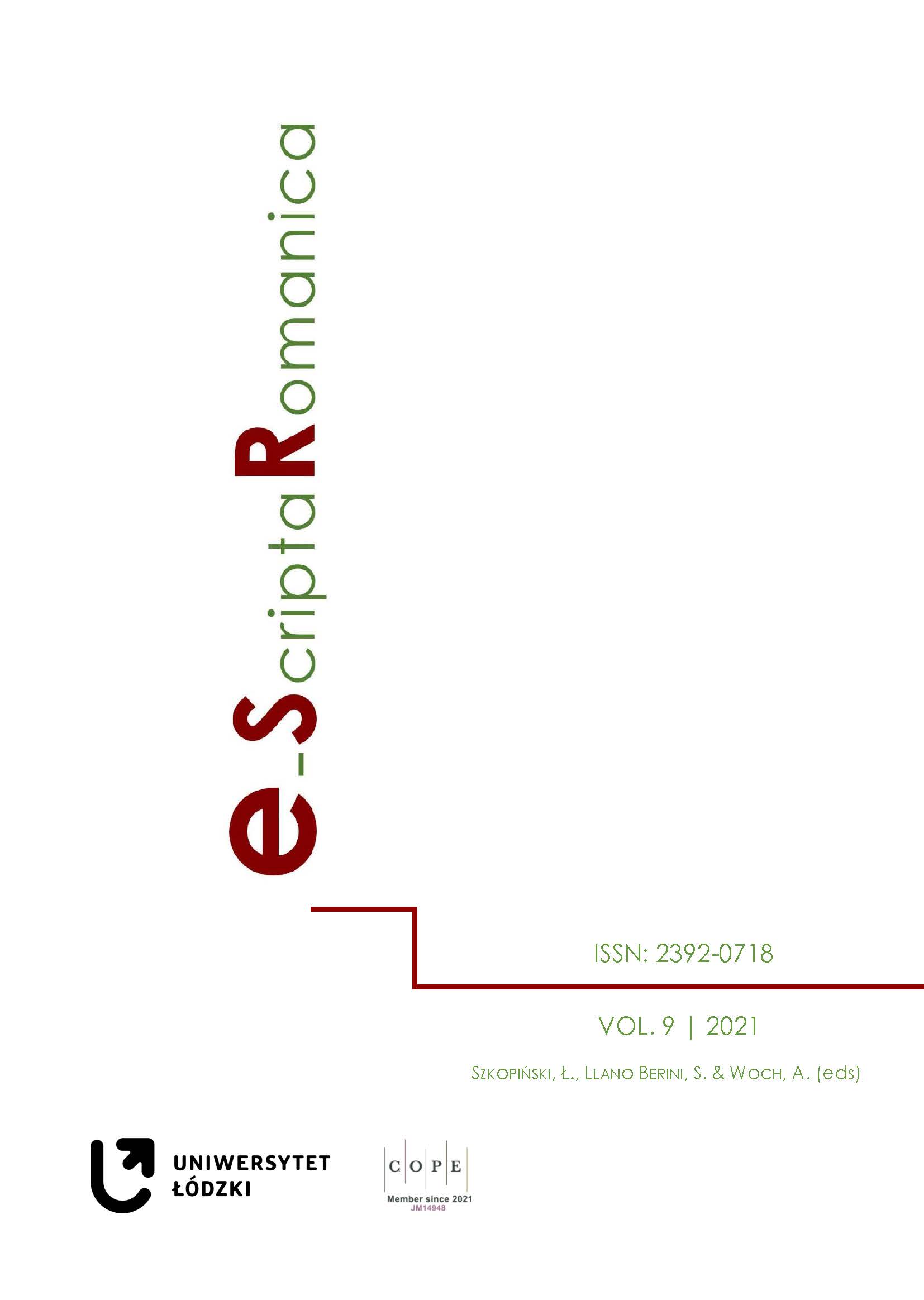Representing the Subaltern: Analysis of the Silenced Discourse of Mariama Bâ and Rosalía de Castro in Two Similar Contexts of Phallocratic Domination
DOI:
https://doi.org/10.18778/2392-0718.09.02Keywords:
postcolonialism, feminism, subalternity, Rosalía de Castro, Mariama Bâ, Such a long letterAbstract
This work focuses on the social and literary repercussions of the silent discourse of two women, Rosalía de Castro, emblematic writer of the Galician literary Renaissance in the 19th century, and Mariama Bâ, one of the pioneers of African women's literature. French-speaking, questioning polygamy in postcolonial Senegalese society. The two writers fight in a phallocratic context intended to ignore the indigenous social group and in particular the women, doubly colonized, domestic slaves serving colonization, responsible for transmitting the dominant discourse within families. From a comparative point of view and within postcolonial studies, we will deal with the marginalization to which others are subjected due to their dual status as women and subordinates.
References
BÂ, M. (2001). Une si longue lettre, Paris : Le serpent à plumes.
Google Scholar
CASTRO, R. DE (1996a). Prólogo de «La Hija del mar». Obra completa. Padrón: Fundación Rosalía de Castro, pp. 15-16.
Google Scholar
http://consellodacultura.gal/mediateca/extras/ccg_pr_a19-mulleres_doc_16_lahijadelmar.pdf [14/06/2021].
Google Scholar
CASTRO, R. DE (1996b). Las literatas. Carta a Eduarda, Obra completa. Padrón: Fundación Rosalía de Castro, pp. 493-495.
Google Scholar
http://culturagalega.gal/album/docs/doc_16_literatas.pdf [14/06/2021].
Google Scholar
CASTRO, R. DE (1996c). “Lieders”. Obra completa. Padrón: Fundación Rosalía de Castro, pp. 491-492.
Google Scholar
http://culturagalega.gal/album/docs/doc_16_lieders.pdf [14/06/2021].
Google Scholar
COMTE-SPONVILLE, A. (2002). Traité du désespoir et de la béatitude, Paris: PUF.
Google Scholar
DIA, A. T. (noviembre 1979). Interview à Mariama Bâ. Amina.
Google Scholar
http://aflit.arts.uwa.edu.au/AMINABALettre.html [14/06/2021].
Google Scholar
GARCÌA NEGRO, M. P. (2008). Rosalía de Castro: a inauguradora da modernidade galega. Madrygal: Revista de estudios gallegos. 11, pp. 133-136. https://dialnet.unirioja.es/servlet/articulo?codigo=2712619 [14/06/2021].
Google Scholar
KESTELOOT, L. (2009). Historia de la literatura negroafricana (Una visión panorámica desde la francofonía), Barcelona: El Cobre Ediciones.
Google Scholar
LOPEZ, A. (18 de julio de 1985). Lírica y etnia: encuentro con Follas Novas. Cuaderno de Cultura/La Voz de Galicia.
Google Scholar
http://culturagalega.gal/album/docs/sobre_16_02.pdf [14/06/2021].
Google Scholar
MICHEL, P. (2001). Lucidité, désespoir et écriture, Angers: Presses Universitaires dAngers/Société Octave Mirbeau.
Google Scholar
NDIAYE, M. (17 de agosto de 2011). 30 ans après sa mort : Mariama Bâ renaît à travers ses écrits. Le Populaire. https://www.seneweb.com/news/Culture/30-ans-apres-sa-mort-mariama-ba-renait-a-travers-ses-ecrits_n_49780.html [14/06/2021].
Google Scholar
ONDO, M. (7 de noviembre de 2009). L’écriture féminine dans le roman francophone d’Afrique noire. La Revue des Ressources.
Google Scholar
https://www.larevuedesressources.org/l-ecriture-feminine-dans-le-roman-francophone-d-afrique-noire,1366.html [14/06/2021].
Google Scholar
PEREYRA, V. & MORA, L. (11 de junio de 2002). Literatura femenina y feminista del África negra. El corresponsal de Medio Oriente y África. http://www.elcorresponsal.com/modules.php?name=Stories_Archive&sa=show_month&year=2002&month=06&month_l=Junio [26/02/2015].
Google Scholar
PÉREZ RUIZ, B. (2008). Mirar al mundo con ojos nuevos: escritoras africanas. Cuadernos de la Fundación Sur (Departamento África), 22 (3).
Google Scholar
http://centroderecursos.alboan.org/ebooks/0000/0561/12_PER_MIR.pdf [14/06/2021].
Google Scholar
PÉREZ RUIZ, B. (abril de 2010). Personajes femeninos en la literatura de autoras africanas frente al trauma: resistencia, adaptación y pragmatismo. Oráfrica, revista de oralidad africana, 6, pp. 171-178.
Google Scholar
https://raco.cat/index.php/Orafrica/article/view/225170/306402 [14/06/2021].
Google Scholar
PÉREZ RUIZ, B. (2015). Otra manera de sentir: feminismos negros, género y estudios literarios en el África subsahariana. Premio Elisa Pérez Vera. Madrid: UNED. https://docplayer.es/18761769-Otra-manera-de-sentir.html [14/06/2021].
Google Scholar
POULLAIN, G. (1976). Marina Mayoral. La poesía de Rosalía de Castro. Bulletin Hispanique, 78 (1), pp. 148-153. https://www.persee.fr/doc/hispa_0007-4640_1976_num_78_1_4196_t1_0148_0000_2 [14/06/2021].
Google Scholar
TCHOMBA, I. N. (6 de junio de 2011). L’image de la femme sénégalaise dans Une si longue lettre de Mariama Bâ. Mondesfrancophones.com. Revue mondiale des francophonies. https://mondesfrancophones.com/espaces/afriques/l%e2%80%99image-de-la-femme-senegalaise-dans-une-si-longue-lettre-de-mariama-ba/ [14/06/2021].
Google Scholar
Downloads
Published
How to Cite
Issue
Section
License

This work is licensed under a Creative Commons Attribution-NonCommercial-NoDerivatives 4.0 International License.











